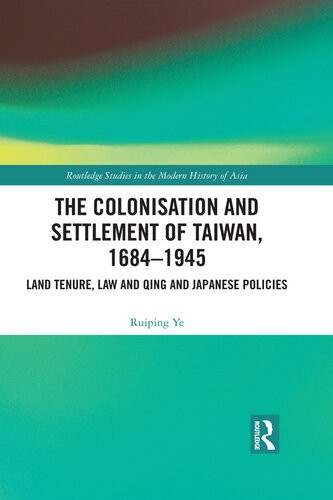

Most ebook files are in PDF format, so you can easily read them using various software such as Foxit Reader or directly on the Google Chrome browser.
Some ebook files are released by publishers in other formats such as .awz, .mobi, .epub, .fb2, etc. You may need to install specific software to read these formats on mobile/PC, such as Calibre.
Please read the tutorial at this link: https://ebookbell.com/faq
We offer FREE conversion to the popular formats you request; however, this may take some time. Therefore, right after payment, please email us, and we will try to provide the service as quickly as possible.
For some exceptional file formats or broken links (if any), please refrain from opening any disputes. Instead, email us first, and we will try to assist within a maximum of 6 hours.
EbookBell Team

4.4
72 reviewsThe dispossession of indigenous peoples by conquest regimes remains a pressing issue. This book, unlike most other books on the subject, contrasts two different colonial administrations – first the Chinese Qing Empire, then, from 1895, the Japanese. It shows how, under the Chinese legal system, the Qing employed the Chinese legal system to manage the relationship between the increasing numbers of Han Chinese settlers and the indigenous peoples, and how, although the Qing regime refrained from taking actions to transform aboriginal land tenure, nevertheless Chinese settlers were able to manipulate aboriginal land tenure to their advantage. It goes on to examine the very different approach of the Japanese colonial administration, which following the Meiji Restoration of 1868 had begun to adopt a Western legal framework, demonstrating how this was intentionally much more intrusive, and how the Japanese modernized legal framework significantly disrupted aboriginal land tenure. Based on extensive original research, the book provides important insights into colonisation, different legal traditions and the impact of colonial settlement on indigenous peoples.